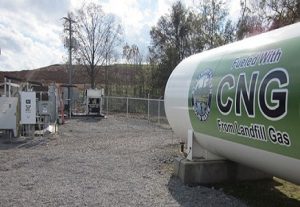On May 7, 2017, Union Minister for Road Transport and Highway, Nitin Gadkari inaugurated India’s first bio refinery plant for renewable fuels and chemicals at Rahu in Pune district of Maharashtra.
- This plant has been set up by Praj Industries. It can produce one million litre of ethanol per annum by processing a variety of agro-residue like rice and wheat straw, cotton stalk, cane trash and corn cobs. With further research and development, pipeline of other renewable fuels and chemicals will also be produced from this technology platform.
What is Bio refinery?
- Just as petroleum refinery produces multiple fuels and by-products from petroleum, bio refinery produces fuels, heat, power and useful chemicals from biomass.
- A bio refinery can produce several low-volume, but high-value, chemical products and a low-value, but high-volume liquid transportation fuel such as biodiesel or bioethanol. These fuels can help in reducing dependency on crude oil.
- Electricity is a by-product from bio-refining process, which can be used for captive consumption or can be sold commercially.
Highlights of India’s National Policy on Biofuels:
- The policy has stated that India’s energy security would remain vulnerable until alternative fuels to supplement petro-based fuels are developed based on indigenously
 produced renewable feedstocks.
produced renewable feedstocks. - Biofuels are environment friendly fuels and their utilization would address global concerns about containment of carbon emissions.
- Increasing dependence upon bio fuels can provide better remuneration to farmers and can also address environmental concerns.
- India’s National Policy on Bio fuels has set indicative target of 20% blending of biofuels, both for bio-diesel and bio-ethanol.
- Unlike international approach for production of biofuels, India’s approach is based on non-food feedstock which is to be raised on land that is not suited to agriculture, thus avoiding a possible conflict of fuel vs. food security.
- In near future, 10 to 12 2nd generation ethanol projects having capacity to produce 1,00,000 litres of ethanol per day will be finalised, with average capex of around Rs 600 crore each.
AffairsCloud Recommends Oliveboard Mock Test
AffairsCloud Ebook - Support Us to Grow
Govt Jobs by Category
Bank Jobs Notification


 produced renewable feedstocks.
produced renewable feedstocks.

